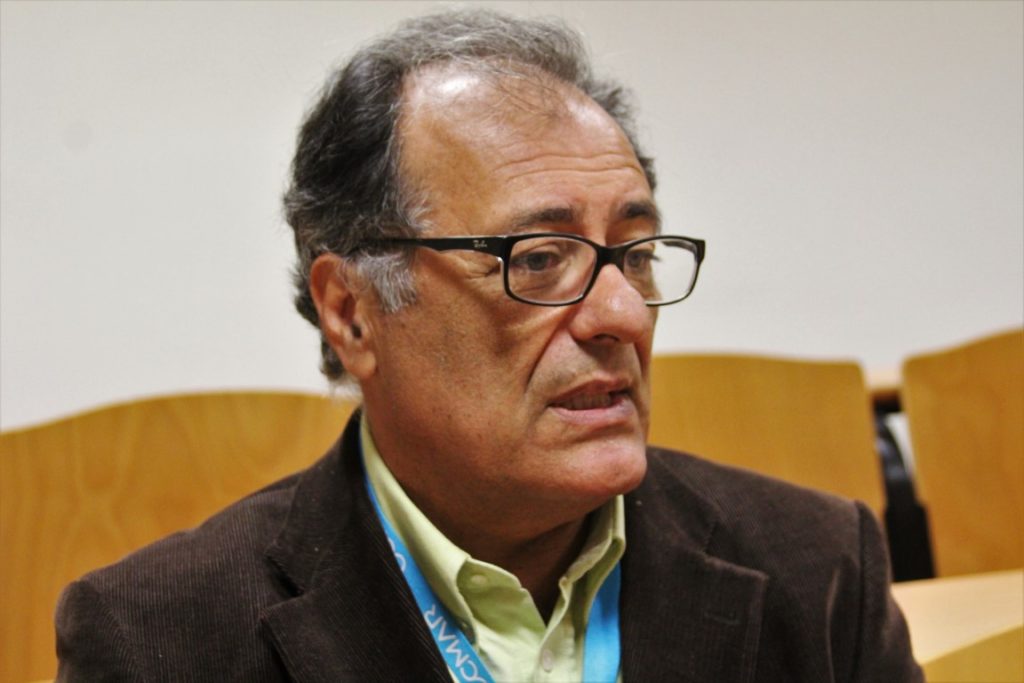Adelino Canário, director of the Center for Marine Sciences (CCMAR) at the University of Algarve, is one of 95 researchers from around the world who signed a “Scientific Appeal for Ocean-Based Actions to Combat the Climate Crisis” launched this Tuesday, 2 November, at COP26 taking place in Glasgow (Scotland).
This appeal was launched during the meeting of the Heads of State and Governments of the Ocean Panel (Ocean panel).
In this document, experts recognize the importance of the ocean for climate regulation and the world economy and highlight the ocean's ability to provide solutions for mitigating and adapting to climate change.
Adelino Canário, director of the Center for Marine Sciences and professor at the University of the Algarve, also points out that "the scientific appeal sets out several strategies that current governments can take to conserve the ocean and enhance the role of the ocean in combating climate change" .
“These are ocean-focused strategies, such as ensuring its sustainable management, meeting ocean protection targets and recognizing the contribution of marine and coastal ecosystems to the carbon balance. If we want to fight climate change, these strategies must no longer appear in reports and start being implemented now», he says.
The United Nations Climate Change Conference – COP26 – takes place this week in Glasgow.
See all signatories here of this appeal.
Scientific Call for Ocean-Based Actions to Combat Climate Crisis
We are specialists in ocean-related disciplines from all ocean regions and basins in the world, brought together under the auspices of the 'High-Level Panel for a Sustainable Ocean Economy'.
We are deeply alarmed by the findings of the IPCC Sixth Assessment Report and the impact that anthropogenic climate change is having on the health of our ocean and the communities that depend on it.
Urgent action is needed to safeguard the ocean's critical role in regulating the Earth's climate, feeding billions of people and boosting the world's economy. For too long, the ocean was considered a victim of climate change. This view ignores the existence of a range of ocean-based solutions – both natural and technological – that are underpinned by science and capable of supporting global mitigation and adaptation efforts.
As scientific understanding of the ocean has grown, its central role in improving people's health, wealth and well-being has become clearer. The United Nations Decade of Ocean Science for Sustainable Development can be a catalyst to identify and address the ocean's most urgent knowledge needs to unlock even more innovation and opportunities to respond to the climate crisis.
The climate crisis is too urgent to continue to disregard the measures and innovations found in the ocean and the blue economy. We must use every part of our economy to tackle climate change.
We call on all Parties to the “United Nations Framework Convention on Climate Change” to:
• Incorporate ocean-based measures into mitigation and adaptation strategies, plans and policies, taking into account the best available science and ensuring sustainability.
• Count all oceanic sources and sinks in national inventories in accordance with IPCC guidance, including the 2013 IPCC Wetlands Supplement.
• Commit to sustainably manage 100% of the ocean area under national jurisdiction and protect 30% of the ocean by 2030 to build the resilience of our ocean and the communities that depend on it and still take advantage of ocean-based mitigation opportunities.
• Increase investment in ocean science capacity to fill data gaps and digitize information on ocean sources and sinks, including coastal and marine ecosystems such as mangroves, seagrasses, coral reefs, salt marshes and seaweed.



















Comments